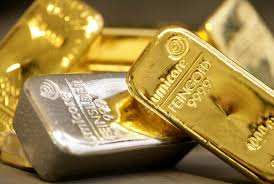Higher prices dent gold demand in Asia

BENGALURU/MUMBAI (Reuters) – Physical gold demand across Asia remained subdued this week as prices rallied to a three-and-a-half-month high, keeping retail buyers away from the market.
Gold prices hit 3-1/2-month highs on Thursday and were on track for a fourth straight weekly gain. Spot gold was down 0.36 percent at $ 1,318.12 per ounce at 0859 GMT on Friday.
In top consumer China, premiums declined to $ 6-$ 7 an ounce from around $ 10 last week.
“January has historically been a strong month for gold… This has traditionally been tied into strong physical demand leading into the Chinese New Year – which is yet to materialise this year,” said MKS PAMP trader Alex Thorndike.
Premiums in Hong Kong were at about 70 cents an ounce, unchanged from last week.
In India, the world’s second largest consumer of gold, a rally in local prices to the highest level in a month kept retail consumers and jewellers on the sidelines.
“Last month prices were falling and now they are rising. Buyers are confused. They are waiting for a clear trend,” said Harshad Ajmera, the proprietor of JJ Gold House, a wholesaler in the eastern Indian city of Kolkata.
Local gold prices have risen 4.3 percent since declining to 28,055 rupees per 10 gram in the third week of December, the lowest since July 17, 2017.
Dealers in India were offering a discount of up to $ 2 an ounce this week over official domestic prices, compared with a premium of $ 2 an ounce last week. The domestic price includes a 10 percent import tax.
After the year-end holidays jewellers were expected to resume buying this week, but the price rally prompted them to postpone purchases, said a Mumbai-based dealer with a private bank.
India’s gold imports in 2017 surged 67 percent from the previous year to 855 tonnes as jewellers replenished inventory amid a rebound in retail demand, provisional data from precious metals consultancy GFMS showed.
Meanwhile, in Japan, higher prices kept gold demand low and even prompted discounts of about 50 cents an ounce, said a Tokyo-based trader.
